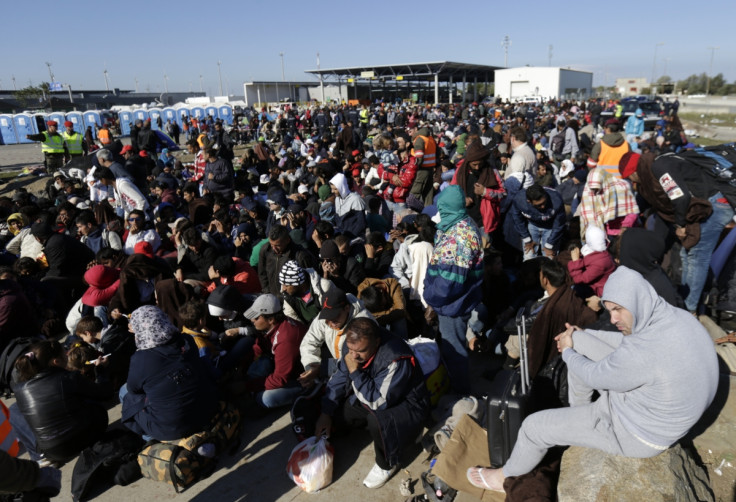Migrant crisis: EU pledges €1bn to help Syria's neighbours stem flows to Europe

European Union leaders who held an emergency meeting to discuss the migrant crisis have pledged at least €1bn (£700m, $1.1bn) for Syrian refugees in neighbourng countries in the Middle East and closer cooperation to help reduce the flow of migrants into Europe. Short term actions before the next regular summit for EU leaders in mid-October includes additional funding to the United Nations refugee agency, its World Food Programme and other agencies, as well as increased funding to Lebanon, Jordan and Turkey, which have taken in millions of Syrians fleeing their home country.
Despite the heated public views expressed by various member states over the relocation of the hundreds of thousands of refugees who have landed on EU's shores, EU Commission President, Jean-Claude Juncker described the seven-hour talks as "excellent" and that it had taken place in a "better-than-expected atmosphere."
"The greatest tide of refugees and migrants is yet to come."
In announcing the measures agreed by EU leaders, European Council President Donald Tusk said the aim of the emergency meeting was to "end the public finger pointing" among members, who have lashed out at each other throughout the crisis.
The meeting, according to Tusk, was "really excellent, for sure much better than we expected." He was alluding to the strong exchange of words between various member states over plans to impose quotas on members to take in 120.000 refugees who have fled war-torn Syria.
"Today's meeting and this atmosphere was a very positive sign. It's quite a symbolic moment for me as it's clear we have stopped this risky blame game," he said. Tusk warned that the "greatest tide of refugees and migrants is yet to come."
German Chancellor Angela Merkel, whose decision to open her country's doors to the migrants, sparked anger among some eastern neighbours said: "We know that the problem is not solved with the decision taken. But we have taken one of many necessary steps. I got the feeling that we want to tackle this task together.
Reuters noted that the summit of EU leaders carried political rather than legal weight. "We can only manage this challenge by working together in a spirit of solidarity and responsibility," a joint statement said.
Tusk and Juncker will host Turkey's President Tayyip Erdogan on 5 October as part of the EU's efforts to work with Turkey on the issue. Turkey has taken in around two million Syrian refugees. The leaders have also agreed to create "hotspots" which will see security forces sent to frontline countries to help screen new migrant arrivals, BBC said.
A November deadline has also been set for Greece and Italy to have EU-staffed hotspots in place to register and fingerprint new arrivals and start the process of relocating the migrants likely to secure refugee status to other EU member states and deport those deemed as unwanted economic migrants. The BBC said the number of asylum applications made in Europe by the end of the year could reach around 1.3 million.
© Copyright IBTimes 2025. All rights reserved.




















